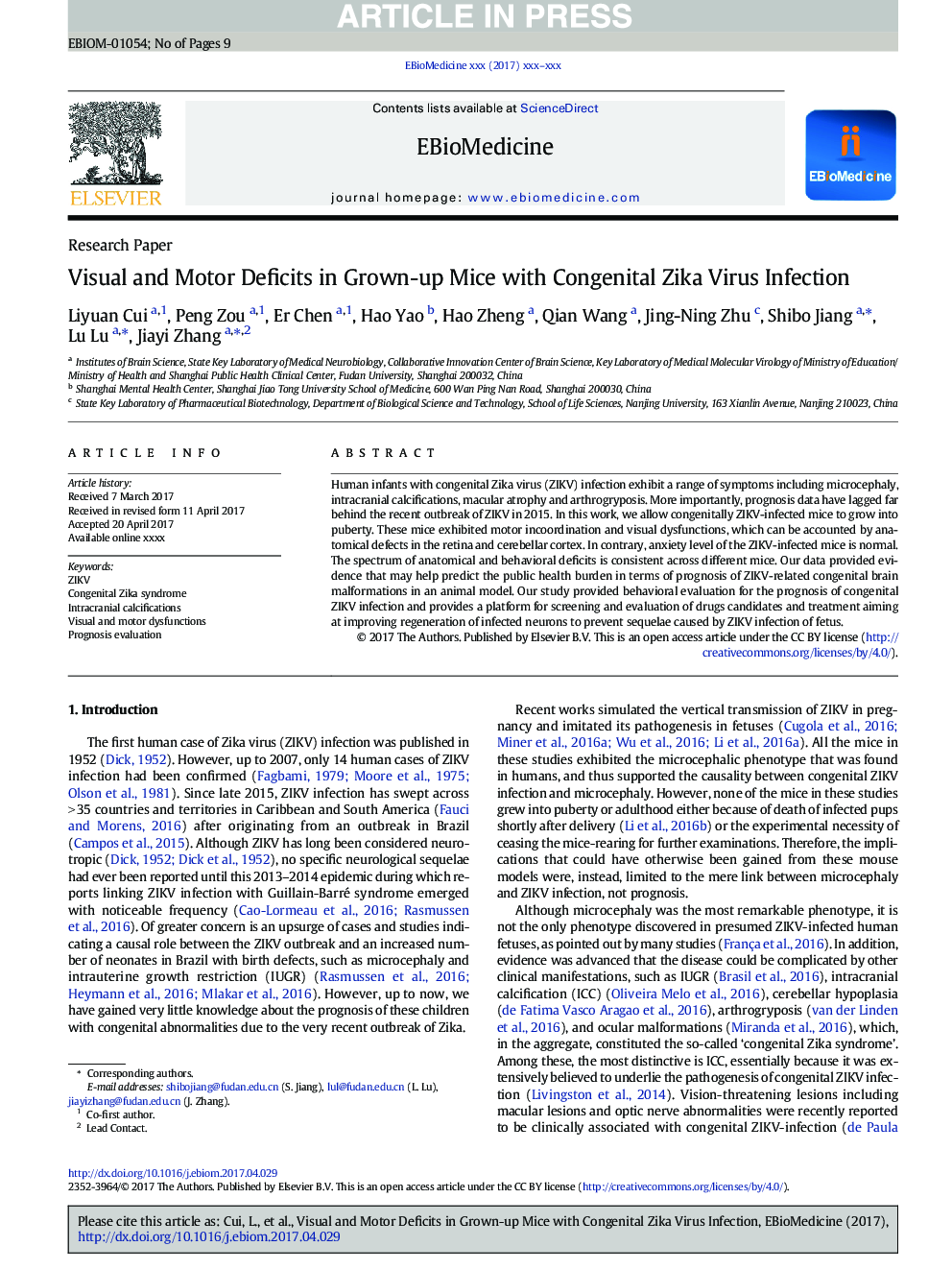| Article ID | Journal | Published Year | Pages | File Type |
|---|---|---|---|---|
| 8438352 | EBioMedicine | 2017 | 9 Pages |
Abstract
Human infants with congenital Zika virus (ZIKV) infection exhibit a range of symptoms including microcephaly, intracranial calcifications, macular atrophy and arthrogryposis. More importantly, prognosis data have lagged far behind the recent outbreak of ZIKV in 2015. In this work, we allow congenitally ZIKV-infected mice to grow into puberty. These mice exhibited motor incoordination and visual dysfunctions, which can be accounted by anatomical defects in the retina and cerebellar cortex. In contrary, anxiety level of the ZIKV-infected mice is normal. The spectrum of anatomical and behavioral deficits is consistent across different mice. Our data provided evidence that may help predict the public health burden in terms of prognosis of ZIKV-related congenital brain malformations in an animal model. Our study provided behavioral evaluation for the prognosis of congenital ZIKV infection and provides a platform for screening and evaluation of drugs candidates and treatment aiming at improving regeneration of infected neurons to prevent sequelae caused by ZIKV infection of fetus.
Keywords
Related Topics
Life Sciences
Biochemistry, Genetics and Molecular Biology
Cancer Research
Authors
Liyuan Cui, Peng Zou, Er Chen, Hao Yao, Hao Zheng, Qian Wang, Jing-Ning Zhu, Shibo Jiang, Lu Lu, Jiayi Zhang,
